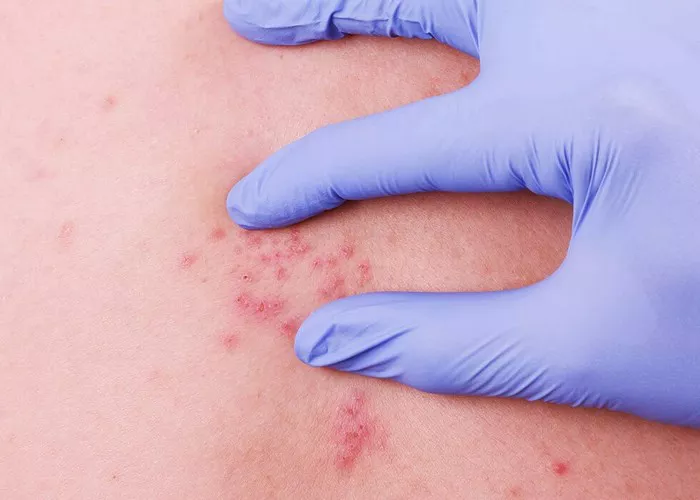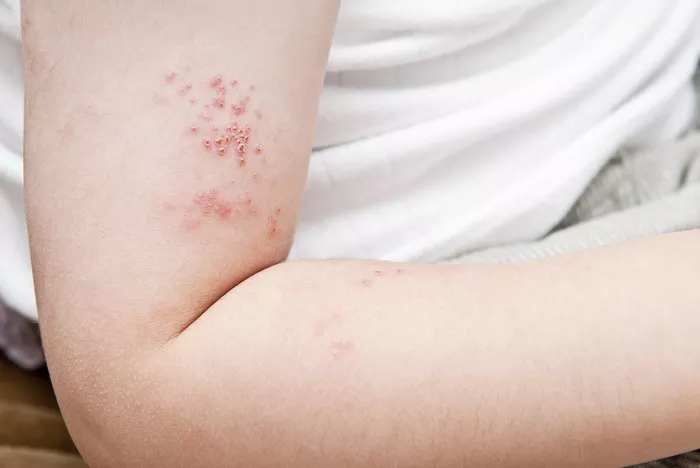Shingles, also known as herpes zoster, is a painful condition caused by the reactivation of the varicella-zoster virus, the same virus that causes chicken pox. After a person recovers from chicken pox, the virus remains dormant in the nerve tissues and can reactivate years later, leading to shingles. While shingles can be a severe and debilitating condition, there are several strategies and interventions that can help prevent its occurrence after having chicken pox. This article delves into the various methods to prevent shingles, including vaccination, lifestyle changes, and medical interventions.
Understanding Shingles and Its Connection to Chicken Pox
Shingles is characterized by a painful rash that typically appears on one side of the body or face. The pain can be severe and may precede the appearance of the rash. Other symptoms include itching, fever, headache, and fatigue. The rash develops into fluid-filled blisters that eventually crust over. The pain from shingles can persist for weeks, months, or even years in some cases, a condition known as postherpetic neuralgia (PHN).
The risk of developing shingles increases with age, especially after the age of 50. People with weakened immune systems, due to conditions like HIV/AIDS, cancer treatments, or certain medications, are also at a higher risk. Understanding the risk factors and triggers for shingles is crucial in devising effective prevention strategies.
Vaccination: The Primary Prevention Method
Shingles Vaccine
The most effective way to prevent shingles is through vaccination. There are two vaccines available for shingles prevention:
1. Zostavax: This is a live attenuated vaccine that was first approved by the FDA in 2006. It is given as a single injection and has been shown to reduce the risk of shingles by about 51% and the risk of PHN by 67%. However, its effectiveness decreases over time, and it is not recommended for people with weakened immune systems.
2. Shingrix: This is a recombinant, non-live vaccine that was approved by the FDA in 2017. It is given in two doses, two to six months apart. Shingrix is more than 90% effective at preventing shingles and PHN. It is recommended for adults aged 50 and older, including those who have already received Zostavax.
Importance of Vaccination
Vaccination not only reduces the risk of developing shingles but also lessens the severity and duration of the disease if it does occur. The widespread use of shingles vaccines has significantly decreased the incidence of the disease, making vaccination a cornerstone of shingles prevention.
Boosting the Immune System
Healthy Diet and Nutrition
A well-balanced diet rich in vitamins and minerals can help strengthen the immune system, reducing the risk of shingles. Key nutrients include:
- Vitamin C: Found in citrus fruits, strawberries, bell peppers, and broccoli, vitamin C is essential for immune function.
- Vitamin E: Found in nuts, seeds, and spinach, vitamin E acts as an antioxidant, protecting cells from damage.
- Zinc: Found in meat, shellfish, legumes, and seeds, zinc is crucial for immune cell function and communication.
Regular Exercise
Regular physical activity can boost the immune system and reduce the risk of viral infections, including shingles. Exercise improves circulation, which allows immune cells to move more freely throughout the body and do their job more effectively.
Adequate Sleep
Sleep is vital for maintaining a healthy immune system. Chronic sleep deprivation can weaken the immune response, making the body more susceptible to infections. Aim for 7-9 hours of quality sleep each night to keep the immune system functioning optimally.
Stress Management
Chronic stress can negatively impact the immune system, increasing the risk of shingles. Practices such as mindfulness meditation, yoga, deep breathing exercises, and hobbies can help manage stress and promote overall well-being.
Medical Interventions
Antiviral Medications
For individuals at high risk of developing shingles, antiviral medications may be prescribed as a preventive measure. These medications, such as acyclovir, valacyclovir, and famciclovir, can suppress the activity of the varicella-zoster virus and reduce the likelihood of reactivation.
Immune System Modulators
In some cases, doctors may recommend immune system modulators to help prevent shingles. These medications can help regulate and enhance the immune response, making it less likely for the virus to reactivate.
Avoiding Known Triggers
Certain factors can trigger the reactivation of the varicella-zoster virus, leading to shingles. By avoiding these triggers, individuals can reduce their risk of developing the disease.
SEE ALSO: Does Shingrix Make You Tired?
Illness and Infection
Other illnesses and infections can weaken the immune system, increasing the risk of shingles. Taking steps to avoid infections, such as practicing good hygiene, getting vaccinated against other diseases, and avoiding close contact with sick individuals, can help maintain a strong immune system.
Injury and Trauma
Injury or trauma to the skin where the virus lies dormant can trigger shingles. Protecting the skin from injury and seeking prompt medical attention for any cuts, bruises, or injuries can help prevent the virus from reactivating.
Special Considerations for High-Risk Individuals
People with Weakened Immune Systems
Individuals with conditions that weaken the immune system, such as HIV/AIDS, cancer, or autoimmune diseases, are at a higher risk of developing shingles. These individuals should work closely with their healthcare providers to manage their condition and take preventive measures against shingles.
Elderly Population
The risk of shingles increases with age, making it especially important for older adults to take preventive measures. Vaccination is highly recommended for individuals over the age of 50, and maintaining a healthy lifestyle is crucial for this age group.
Conclusion
Preventing shingles after having chicken pox involves a multifaceted approach, including vaccination, boosting the immune system through a healthy lifestyle, medical interventions, and avoiding known triggers. The shingles vaccine is the most effective preventive measure, significantly reducing the risk of the disease and its complications. By adopting these strategies, individuals can lower their chances of developing shingles and maintain a higher quality of life.
It’s important to consult with healthcare providers to determine the best preventive measures based on individual health status and risk factors. With proper prevention, the incidence and severity of shingles can be greatly reduced, providing peace of mind and better health outcomes for those who have had chicken pox.
Related Topics:


























